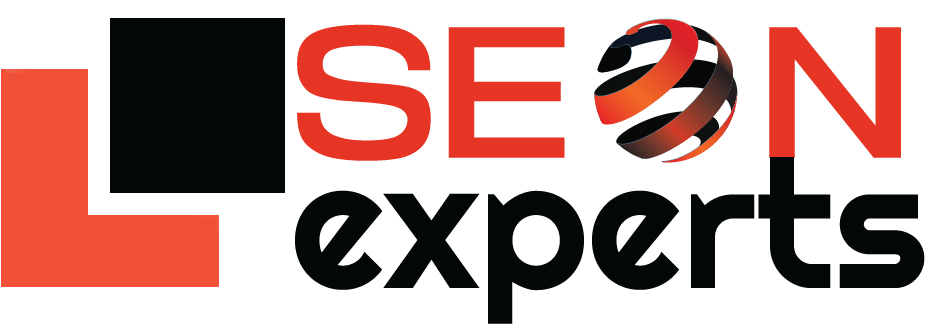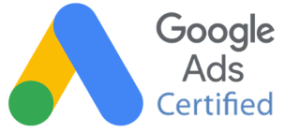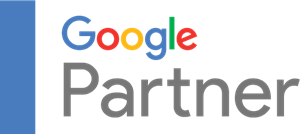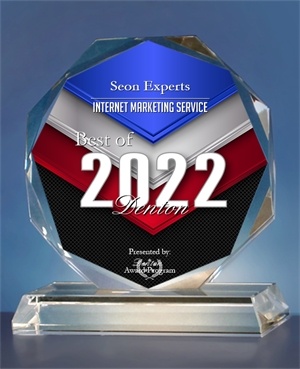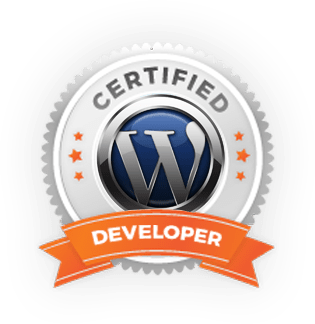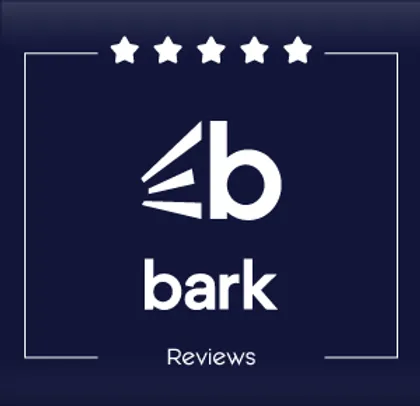
In today’s fast-paced digital landscape, businesses must deploy integrated digital marketing strategies to stay ahead of the competition. The term ‘integrated digital marketing’ refers to a cohesive approach that combines various online marketing channels—such as SEO, social media, email marketing, and paid advertising—into a unified strategy. This holistic approach ensures that all marketing efforts are aligned and working toward the same goal, maximizing the impact and return on investment (ROI).
At SEON Experts, we are dedicated to helping businesses navigate this complex terrain. We understand that an effective integrated digital marketing strategy requires not just the right tools but also the expertise to leverage them for optimal results. Whether you are a small startup or an established enterprise, our team can help you create a tailored plan that meets your unique needs.
By integrating multiple marketing channels, you can create a more seamless and engaging customer journey. For instance, a well-coordinated campaign can start with a social media post that drives traffic to your website, followed by retargeting ads that keep your brand top-of-mind, and finally, an email campaign that converts leads into customers. This integrated approach not only enhances customer experience but also improves the efficiency and effectiveness of your marketing efforts.
Ready to elevate your brand’s online presence and achieve ultimate growth? Call us today at (817) 213-6090 to get started on your integrated digital marketing journey.
Key Components of Digital Marketing

Understanding the key components of digital marketing is crucial for crafting an effective integrated strategy. These components work together to create a cohesive and impactful marketing plan:
- Search Engine Optimization (SEO): SEO is the practice of optimizing your website and content to rank higher in search engine results pages (SERPs). This increases organic visibility and drives valuable traffic to your site.
- Content Marketing: Content is king in the digital world. Creating high-quality, relevant content helps attract and engage your target audience. This can include blog posts, videos, infographics, and more.
- Social Media Marketing: Social media platforms offer a powerful way to connect with your audience, build brand awareness, and drive engagement. Effective social media strategies involve consistent posting, audience interaction, and targeted advertising.
- Email Marketing: Email remains one of the most effective channels for nurturing leads and maintaining customer relationships. Personalized email campaigns can drive conversions and keep your audience informed about your brand.
- Pay-Per-Click (PPC) Advertising: PPC ads, such as Google Ads, allow you to reach your target audience quickly by paying for ad placements on search engines and other platforms. This can be a cost-effective way to drive immediate traffic and conversions.
- Analytics and Reporting: Tracking and analyzing the performance of your digital marketing efforts is essential for making informed decisions. Tools like Google Analytics provide valuable insights into user behavior, campaign effectiveness, and ROI.
By understanding and leveraging these key components, businesses can create a robust integrated digital marketing strategy that drives growth and maximizes ROI. Each component plays a vital role in attracting, engaging, and converting your target audience.
Benefits of Integrated Marketing Strategies

An integrated marketing strategy combines various marketing channels and tactics to create a cohesive and powerful approach. Here are some key benefits of implementing integrated marketing strategies:
- Consistent Messaging: Integrated marketing ensures that your brand message is consistent across all channels. This consistency helps build trust and recognition, making your brand more memorable to your audience.
- Improved Customer Experience: By providing a seamless experience across different touchpoints, integrated marketing enhances the overall customer journey. Customers receive the same high level of service and information whether they interact with you online, through social media, or in person.
- Increased Reach and Engagement: Utilizing multiple channels allows you to reach a broader audience. When these channels work together, they amplify your marketing efforts, increasing engagement and driving more traffic to your website.
- Better Resource Allocation: Integrated strategies enable you to allocate resources more efficiently. By understanding how different channels complement each other, you can optimize your budget and time to focus on the most effective tactics.
- Enhanced Data and Analytics: Combining data from various sources provides a comprehensive view of your marketing performance. This holistic approach allows for more accurate analysis and better decision-making, leading to improved campaign effectiveness and ROI.
- Higher ROI: When marketing efforts are aligned and synchronized, they produce better results. Integrated strategies minimize wasted efforts and maximize the impact of each campaign, leading to a higher return on investment.
Incorporating integrated marketing strategies into your business not only streamlines your marketing efforts but also drives more effective and efficient results. By ensuring all components work together, you create a powerful, unified approach that propels your brand forward.
Creating a Multi-Channel Approach
Developing a multi-channel approach is crucial for the success of integrated digital marketing. This approach involves leveraging various platforms and channels to communicate with your target audience, ensuring that your message reaches them wherever they are. Here’s how to create an effective multi-channel strategy:
Identify Your Audience
The first step is to understand your audience. Analyze demographic data, behavior patterns, and preferences to determine which channels they use the most. This insight will guide your channel selection and messaging strategy.
Select the Right Channels
Once you know your audience, choose the channels that will best reach them. These may include:
- Social Media: Platforms like Facebook, Instagram, LinkedIn, and Twitter cater to different audiences and types of content.
- Email Marketing: A direct way to reach customers with personalized messages and offers.
- Content Marketing: Blogs, articles, and videos that provide value and engage your audience.
- SEO and PPC: Search engine optimization and pay-per-click advertising to drive traffic to your website.
- Traditional Media: Depending on your audience, TV, radio, and print can still be effective.
Consistent Messaging
Ensure that your messaging is consistent across all channels. This doesn’t mean identical content, but rather a coherent brand voice and message that align with your overall marketing goals.
Integrate Your Efforts
Integration is key. Use tools and platforms that allow for seamless management of your campaigns across different channels. This will help you maintain consistency and track performance more effectively.
Measure and Optimize
Regularly analyze the performance of each channel. Use analytics to understand what’s working and what’s not, and be ready to adjust your strategy accordingly.
By carefully planning and executing a multi-channel approach, you can ensure that your marketing efforts are cohesive and effective, reaching your audience at multiple touchpoints and driving better results.
Tools for Effective Digital Marketing

In the realm of integrated digital marketing, utilizing the right tools can significantly enhance your efficiency and effectiveness. These tools help streamline processes, improve communication, and provide valuable insights. Here are some essential tools for effective digital marketing:
Customer Relationship Management (CRM) Software
A robust CRM system, such as Salesforce or HubSpot, enables you to manage and analyze customer interactions throughout the customer lifecycle. It helps in building stronger relationships, improving customer retention, and driving sales growth.
Social Media Management Tools
Tools like Hootsuite and Buffer allow you to schedule posts, manage multiple social media accounts, and analyze performance metrics from a single dashboard. These tools save time and ensure consistent posting across all your social media channels.
Email Marketing Platforms
Email marketing tools such as Mailchimp and Constant Contact facilitate the creation, sending, and tracking of email campaigns. They offer features like automation, segmentation, and detailed analytics to optimize your email marketing efforts.
Content Management Systems (CMS)
Platforms like WordPress and Drupal provide a flexible and user-friendly way to manage your content. They support SEO best practices and allow for easy updates and maintenance of your website.
Analytics and Reporting Tools
Google Analytics and Adobe Analytics are indispensable for tracking website performance and user behavior. These tools provide insights into traffic sources, user engagement, and conversion rates, helping you make data-driven decisions.
SEO Tools
SEO tools such as Ahrefs, SEMrush, and Moz assist in keyword research, backlink analysis, and competitor analysis. They help you optimize your website content and improve your search engine rankings.
By leveraging these tools, you can streamline your digital marketing processes, gain deeper insights into your campaigns, and ultimately enhance your overall marketing strategy. Investing in the right tools is crucial for staying competitive and achieving your business goals.
Measuring Success in Digital Marketing

Effective integrated digital marketing strategies require robust mechanisms for measuring success. This involves tracking key performance indicators (KPIs) and analyzing data to understand the impact of your marketing efforts. Here are some critical metrics and methods to measure your success:
Website Traffic
Monitoring website traffic is fundamental. Tools like Google Analytics provide detailed insights into the number of visitors, page views, session duration, and bounce rates. These metrics help you gauge the effectiveness of your SEO and content marketing strategies.
Conversion Rates
Conversion rates are crucial for assessing how well your website and marketing campaigns are performing. This includes tracking the percentage of visitors who complete desired actions, such as making a purchase, filling out a form, or subscribing to a newsletter.
Customer Engagement
Engagement metrics, such as social media likes, shares, comments, and email open rates, indicate how well your audience is interacting with your content. High engagement levels often correlate with strong brand loyalty and customer satisfaction.
Return on Investment (ROI)
Calculating the ROI of your digital marketing efforts helps you understand the financial effectiveness of your campaigns. This involves comparing the revenue generated from marketing activities against the costs incurred.
Lead Generation
Tracking the number and quality of leads generated through various channels is essential. Tools like HubSpot and Salesforce can help you manage and analyze leads, ensuring that your marketing efforts are attracting potential customers.
Customer Retention
Customer retention rates measure how well you maintain your customer base over time. High retention rates often indicate successful customer relationship management and satisfaction.
By continuously monitoring these metrics, you can identify areas for improvement and optimize your digital marketing strategies for better results. Remember, consistent evaluation and adjustment are key to staying ahead in the competitive digital landscape.
Ready to elevate your digital marketing strategy? Call us today at (817) 213-6090 to discover how SEON Experts can help drive your business growth.
